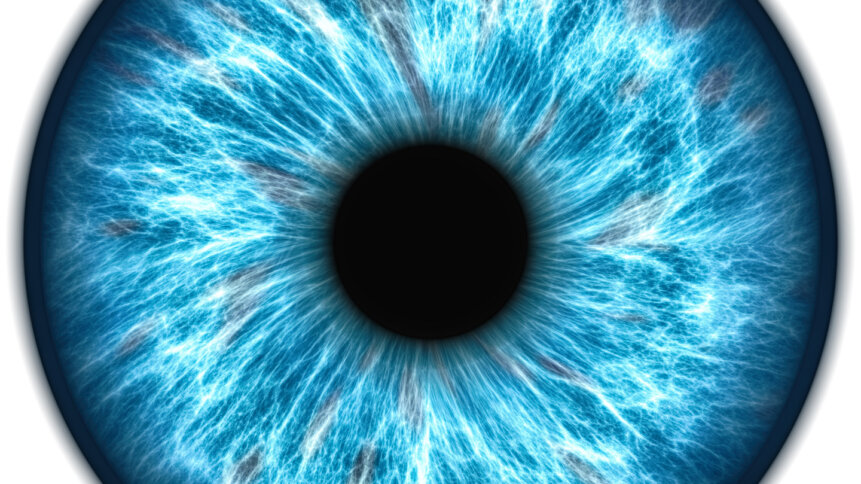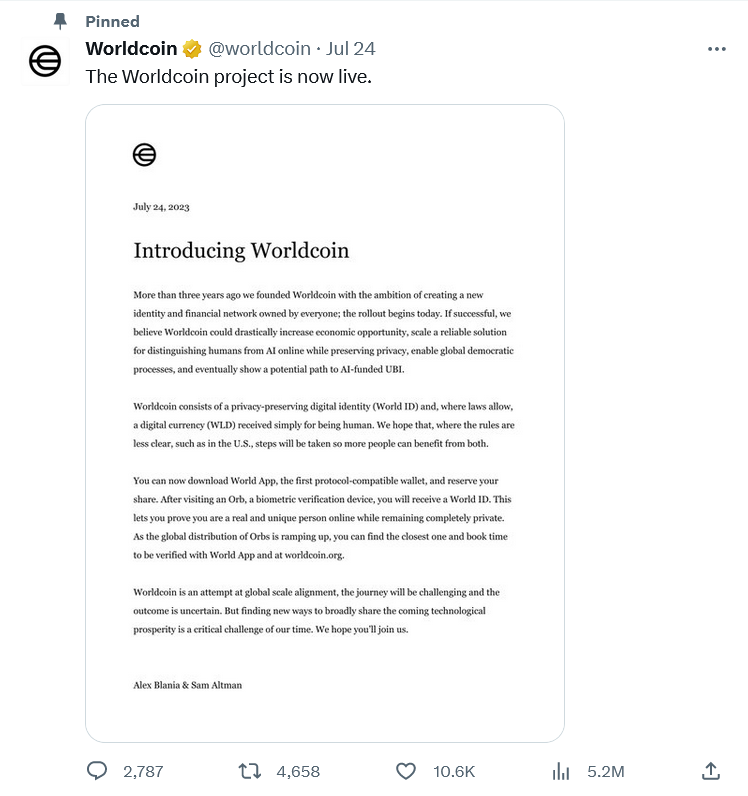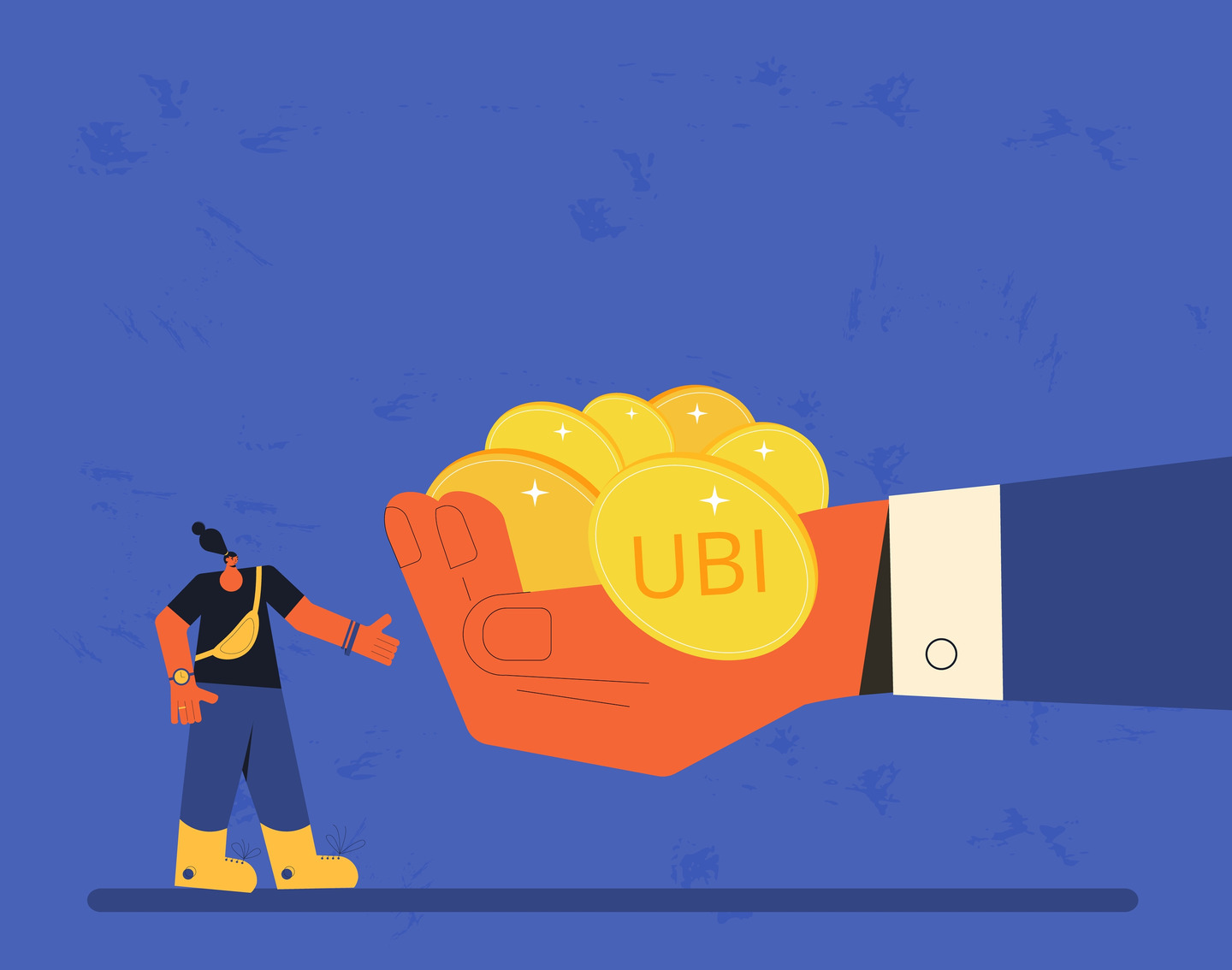Worldcoin and World ID – identity security against generative AI bots?

• Worldcoin and World ID are the newest releases unveiled by Sam Altman.
• While Worldcoin is a cryptocurrency, World ID is an identity management strategy based on blockchain.
• As bots evolve, we need a robust identity management solution to withstand potential impersonation.
Like Jobs, like Gates, like Ma, and like at last an early Musk, Sam Altman, CEO of OpenAI is fast becoming a person who, when he floats an idea, is worth paying attention to. Since the launch of ChatGPT, he’s someone who’s been courted by presidents, advised the US Congress, and toured Europe, trying to both stoke engagement, acknowledge reasonable fears about generative AI, and help to allay them – though admittedly, within certain OpenAI-advantageous lines.
So when Altman launched a new cryptocurrency-cum-security project in late July, understandably, the world sat up and took notice. Worldcoin is a coming together of two worlds that at first feels clunky, but on further inspection, has more to recommend it than meets the eye.

It’s aliiiive! Worldcoin goes public.
First of all, Worldcoin is a cryptocurrency, more or less like any other. Cryptocurrencies are e-currencies that exist on blockchains and as such are at least theoretically more secure than real-world cash, though 2022 was in no sense a good year for anyone making that argument, as crypto-exchange after crypto-exchange was hacked, robbed, or in some notable cases, collapsed from the inside out. Sam Bankman-Fried, we’re looking at you.
READ NEXT

Blockchain – a matter of trust
Behind the Worldcoin scenes.
But the cryptocurrency element of Worldcoin is only, really, the first handful of words in the headline of Altman’s new development. Because much more of the point of Worldcoin is something called World ID.
World ID is the point in the story of Sam Alman and Worldcoin where, if you were writing it as an episode of Black Mirror or The Twilight Zone, you’d ask yourself whether you could get away with something a little extra-weird. And not for nothing, it’s also the point at which those who’ve read their Revelation 11, 13-18 (the part where in the end of days, you can’t buy or sell unless you’re recognizable by having “the mark of the Beast”) get jumpy about their ability to buy and sell – just as they did decades ago on the introduction of barcodes to food items in supermarkets.
Because World ID involves a couple of elements that are both dystopian science fiction gold and apocalyptic conspiracy fodder. But, much more importantly, they also amount to a potential solution of a couple of key issues of the AI age – issues that were coming down the line before the launch of ChatGPT, but have become increasingly critical to tackle since its launch into the world.
Worldcoin’s World ID element is an “orb.”
A shiny metal orb into which you look, and which then records your iris pattern.
What that does is instantly create your “World ID.” A more or less universal proof not only that you are who you say you are, but that you’re a human being – rather than a sophisticated bot powered by generative AI like ChatGPT, GPT-4, Bard or any of the other big players.
Your World ID is then stored in a blockchain – the premise of which is that once the information packet is sealed on the chain, it can never be reopened or tampered with. It can also, at least theoretically, never be lost or shut down by any single entity. Your World ID is, essentially, “you” in terms of its power to access the things to which you should have access – and also to not access things to which you shouldn’t have access.
Worldcoin and Word ID – 21st century identity management.
The idea in itself is straightforward – an uncrackable, unhackable, tamper-proof digital identity that could, apart from anything else, do away with at least some of the arms race between the forces of authority and the forces of chaos when it comes to passwords, and password-protected data.
If your password is actually your World ID, locked as it is in an unbreakable blockchain, then you should, barring evolutions like synthetic iris-prints (or potentially a new spate of eyeball-theft – did we mention the dystopian sci-fi element?), never have to worry about password theft, and the technology goes a good deal of the way towards tackling identity theft too.

That’s you in the data. That’s you on the blockchain, proving your identity…
But it’s also notable that the idea has its roots in the new world of generative AI. In fact, the chief motivation for the development of Worldcoin and the World ID is precisely the development of generative AI chatbots. At the moment, they’re fairly good at writing believable sentences – sentences that in many cases persuade human beings that they’re interacting with other human beings.
But the bots learn.
That means the only trend can be towards increasing sophistication, and a continual blurring of the lines between what is a genuine human being, and what is an incredibly sophisticated generative AI bot.
Identity management is already a big concern in IT and cybersecurity – both in terms of which humans have authority to access which parts of a system and which bots and programs are talking to which to make systems work.
The World ID has been proposed as a way to establish, quickly, easily, and so long as blockchain does what it’s always done, beyond any attempt at external subterfuge, that the human who owns the World ID is both a) human, and b) the same human as is attempting to access the system.
But in launching Worldcoin and the World ID, Alman said he saw the impact of generative AI going further. It will, he said, “do more and more of the work that people now do” – perhaps the most cogent admission that “AI will take our jobs” we’ve yet had from someone at the top of the AI pyramid.
Worldcoin and the UBI.
That led him to speculate on the adoption of an idea that has been floating around for decades – the Universal Basic Income (UBI).
While Altman acknowledged that the UBI is probably a long way off, certainly in an America that has yet to understand the principle of universal healthcare free at the point of need, he said it would represent a way to tackle income inequality.
Income inequality is currently soaring in the US, with some CEOs earning hundreds or even thousands of times the average wage of their workers.
And while there would be significant philosophical hurdles to overcome before the home of uber-capitalism adopted the idea of essentially giving away “money for nothing” to people whose working lives and even whole skillsets were swept away by generative AI, Altman’s Worldcoin and World ID would at least defuse one of the main concerns with it – the idea that any such UBI system would be open to fraud.

“No, by all means, have our money, verified human…”
In a world of standard checks and balances, the idea that the system could be gamed by unscrupulous actors might be valid – and so, might significantly slow any adoption of something as potentially transformative as the UBI. But by narrowing the aperture of receipt to a single point of entry – the World ID linked to your iris scan – the fraud potential at least can be mitigated and minimized. If you can get past a system based on blockchain and iris scans, you probably have marketable skills beyond the receipt of UBI!
Viewed with skeptical eyes, Altman’s unveiling of a system that can protect against the potential dangers of generative AI could be seen as akin to Robert Oppenheimer coming up with a line of nuclear bomb shelters – and assuming it works better than traditional identity management techniques, there may well be questions about Alman’s involvement on both sides of the issue, despite Worldcoin actually being run by Berlin-based company, Tools for Humanity.
In a data-sensitive world, there might well also be questions asked about a single company potentially holding a worldwide database of iris-scans (assuming the scans themselves are retained beyond the initial process of the creation of the World ID – and unless people complain, why wouldn’t they be?).
But with 2 million users in its Beta period, and plans to scale up rapidly to send orbs to 35 cities in 20 countries, Worldcoin, and its World ID, will now face an intriguing live trial in the wild.
Its success or failure as a working identity management concept (and a cryptocurrency to boot) will determine whether it has what it takes to secure humanity and human identity from a range of generative AI chatbots growing ever more sophisticated.









